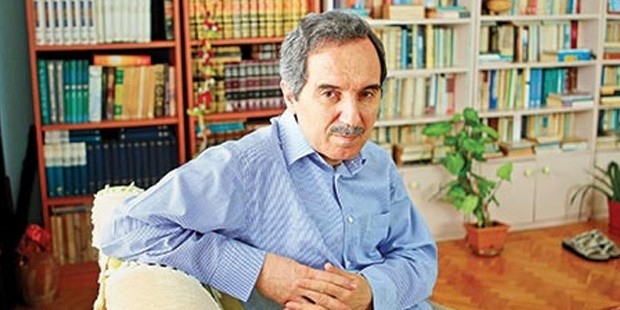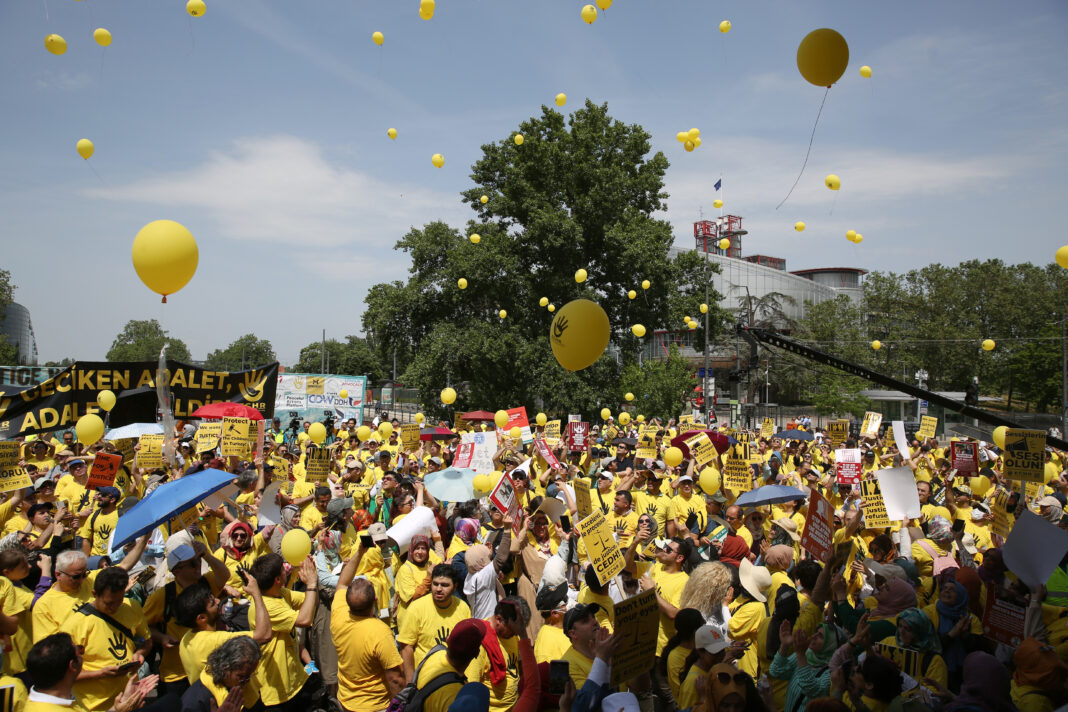The United Nations (UN) Working Group on Arbitrary Detention (WGAD) has announced its decision regarding Journalist-Writer Ali Ünal, who has been imprisoned for nearly 7 years.
The UN declared that none of the grounds on which Ali Ünal was accused constitutes a crime, and that not only his arrest but even his trial is contrary to law.
In its decision, the UN Working Group stated that the issues which the Erdogan regime’s judges and prosecutors call criteria and use as grounds for punishing innocent people are legal and routine activities; and that it is not possible to impose penalties or arrest based on these.
Ali Ünal was arrested in August 2016 on the grounds of his newspaper columns and was sentenced to 19 years and 6 months in prison after a so-called trial.
NO EVIDENCE FOR THE ACCUSATIONS
The UN Working Group’s decision stated, ‘The reason for the applicant’s detention is their involvement in the Gülen Movement. The WG noted that the Government has not demonstrated how the actions attributed to the applicant constitute a crime and that these actions do not even create reasonable suspicion of a crime being committed.’
The decision, which emphasized that journalistic activities cannot be a crime, also reported that the government could not provide any evidence as to why the issues that were used as grounds for punishing tens of thousands of people were considered terrorist activities.
PEOPLE BECAME TARGETS DUE TO THEIR VIEWS
Meanwhile, human rights lawyer Dr. Gökhan Güneş shared the following on his social media account regarding the UN Working Group on Arbitrary Detention’s decision on Ali Ünal:
”The WGAD stated that Ünal’s activities did not contain calls for violence and that these activities fall within the freedom of expression and assembly; writing columns and books and making television programs, namely engaging in journalistic activities, would not justify his detention (P.73).
The decision states that in all applications, including kidnappings from abroad, the Government has not made a determination as to how the activities constituting the accusation amount to criminal acts; it is stated that individuals are accused because of their participation in legal activities, and it is expressed that the Government could not provide any evidence that the applicant’s journalistic activities correspond to an act related to violence or terrorism. The reason for Ünal’s arrest is his exercise of freedom of expression and association! (Paragraph 75).
Yes, you read that correctly! The Government has not been able to provide evidence as to why the issues used as grounds for punishing tens of thousands of people are considered terrorist activities.
One of the important observations made by the WGAD in the decision is that, just like the applicant, tens of thousands of people have become targets not because of their crimes or activities, but because of their political views, and that they have been arrested and punished as a result of a discriminatory approach and, more explicitly, the application of enemy criminal law (Paragraph 75).
The WGAD stated that Ünal’s deprivation of liberty was arbitrary, noting that he should not even be TRIED, let alone sentenced, yet he was given a prison sentence of 19 years and 6 months.
DETENTIONS ARE ARBITRARY
The applicant stated that his phone was seized in violation of Article 134 of the Criminal Procedure Code, and because a proper image could not be taken, he could not refute the evidence against him, his access to the file was blocked, and the indictment prepared with reference to his books and writings came shortly before the announcement of the decision, and he could not make adequate preparations for defense.
Although the Government had the opportunity to respond to these allegations, it did not do so, and the Working Group concluded that there was a violation of Article 14/3 (e) of the “Covenant and Articles 10 and 11/1 of the Universal Declaration of Human Rights”. Again, according to the Working Group, the violation of the applicant’s right to a fair trial is severe enough to give his detention an arbitrary character (P.80-81-82).
One of the important observations made by the WGAD in the decision is that, just like the applicant, tens of thousands of people have become targets not because of their crimes or activities, but because of their political views, and that they have been arrested and punished as a result of a discriminatory approach and, more explicitly, the application of enemy criminal law (P. 83).
CRIMES AGAINST HUMANITY ARE BEING COMMITTED IN TURKEY
The WGAD included in this decision a point it had mentioned in its previous decisions, reminding that this widespread or systematic imprisonment or other serious deprivations of liberty that violate the fundamental rules of international law may constitute crimes against humanity (P.85).
The regime’s judges and prosecutors ignore the international conventions to which Turkey is a party, causing these and similar decisions to be made, and these decisions will later take their place in the indictments as evidence of the systematic, widespread and organized crimes against humanity they have committed.
Those who currently resort to all kinds of unlawfulness with the intoxication of power and cannot provide a single piece of evidence to international authorities regarding their accusations should not think that this unlawful order will continue forever!
As we have always said, there will be no need to even look for evidence for the trials where these unfortunate individuals, who write the indictments against them with their own unlawful decisions, will receive the punishments they deserve, and just the printout of these decisions will be enough!



